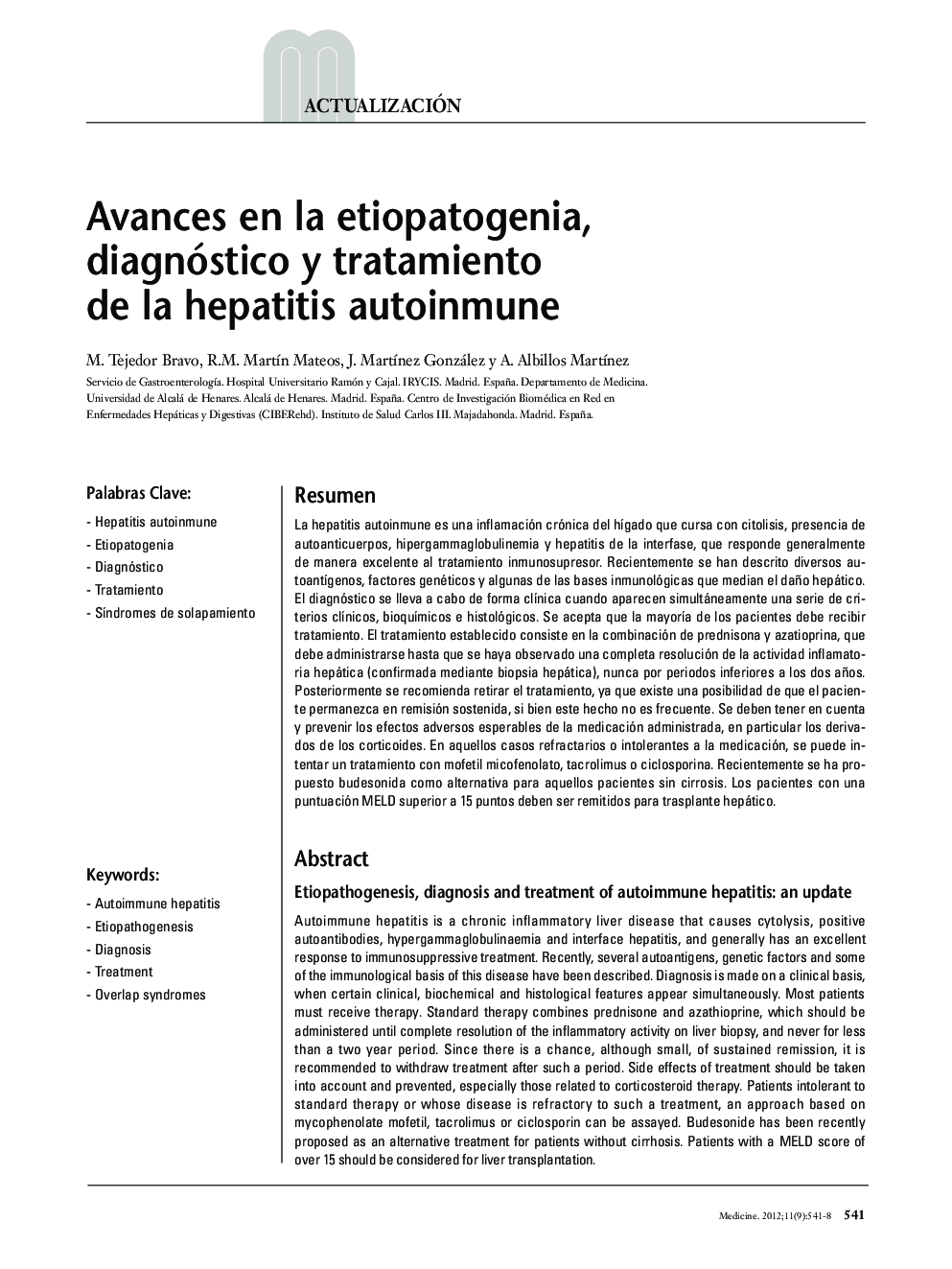| Article ID | Journal | Published Year | Pages | File Type |
|---|---|---|---|---|
| 3806080 | Medicine - Programa de Formación Médica Continuada Acreditado | 2012 | 8 Pages |
Abstract
Autoimmune hepatitis is a chronic inflammatory liver disease that causes cytolysis, positive autoantibodies, hypergammaglobulinaemia and interface hepatitis, and generally has an excellent response to immunosuppressive treatment. Recently, several autoantigens, genetic factors and some of the immunological basis of this disease have been described. Diagnosis is made on a clinical basis, when certain clinical, biochemical and histological features appear simultaneously. Most patients must receive therapy. Standard therapy combines prednisone and azathioprine, which should be administered until complete resolution of the inflammatory activity on liver biopsy, and never for less than a two year period. Since there is a chance, although small, of sustained remission, it is recommended to withdraw treatment after such a period. Side effects of treatment should be taken into account and prevented, especially those related to corticosteroid therapy. Patients intolerant to standard therapy or whose disease is refractory to such a treatment, an approach based on mycophenolate mofetil, tacrolimus or ciclosporin can be assayed. Budesonide has been recently proposed as an alternative treatment for patients without cirrhosis. Patients with a MELD score of over 15 should be considered for liver transplantation.
Keywords
Related Topics
Health Sciences
Medicine and Dentistry
Medicine and Dentistry (General)
Authors
M. Tejedor Bravo, R.M. MartÃn Mateos, J. MartÃnez González, A. Albillos MartÃnez,
